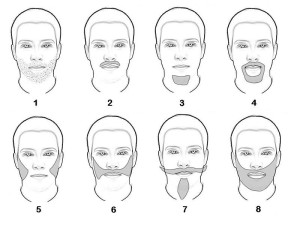 A man fired for refusing to shave his beard has been awarded $65,174.83 in back pay, costs, and attorney’s fees. As reported, Abdulkadir Omar refused to comply with demands from his employer, American Patriot Security & Investigations, Inc., to shave, citing his sincerely held religious belief that, as a male Muslim, he is required to keep a beard. (Contrary to the misleading headline of the linked article, Omar was not awarded “$66,000 in back pay” — $50,791.50 went to attorney’s fees.)
A man fired for refusing to shave his beard has been awarded $65,174.83 in back pay, costs, and attorney’s fees. As reported, Abdulkadir Omar refused to comply with demands from his employer, American Patriot Security & Investigations, Inc., to shave, citing his sincerely held religious belief that, as a male Muslim, he is required to keep a beard. (Contrary to the misleading headline of the linked article, Omar was not awarded “$66,000 in back pay” — $50,791.50 went to attorney’s fees.)
The timeline of the firing, as alleged in the complaint, indicates there may be more to the story than a dress code violation. Omar began working for the private company, American Patriot, as a security guard on May 28, 2009. Five months later, a supervisor ordered him to shave his beard. Omar refused, citing his “sincerely held belief.” Almost six months after that, on April 21, 2010, Omar met with Project Manager Nicole Smith to complain that he had not been “paid all his wages for time worked.” During this meeting, Smith repeated the request that Omar shave his beard. He again refused, and contacted the Council on American-Islamic Relations (CAIR), which issued a letter on April 23 corroborating Omar’s claim. That same day, Scott Jacobs, CEO of American Patriot, suspended Omar without pay over the facial hair issue, and “challenged [his] religious belief.” The statutory claim of religious discrimination is, therefore, alleged as retaliation for Omar’s complaints about unpaid wages.
The judge here found Omar’s claim to be legitimate. The wide latitude given to private employers to govern employee dress and appearance with few constitutional implications is discussed in the “Dressing Professionally” section of Dressing Constitutionally.
As this case shows, regulation of appearance can function as both an end in itself and as a cover for other wrongs: when Omar complained about wages owed, his employer suspended him for a dress code violation, and he won his case on a claim of appearance-based religious discrimination. Yet as this case also demonstrates, the cost of vindicating rights is high.
[image via]
